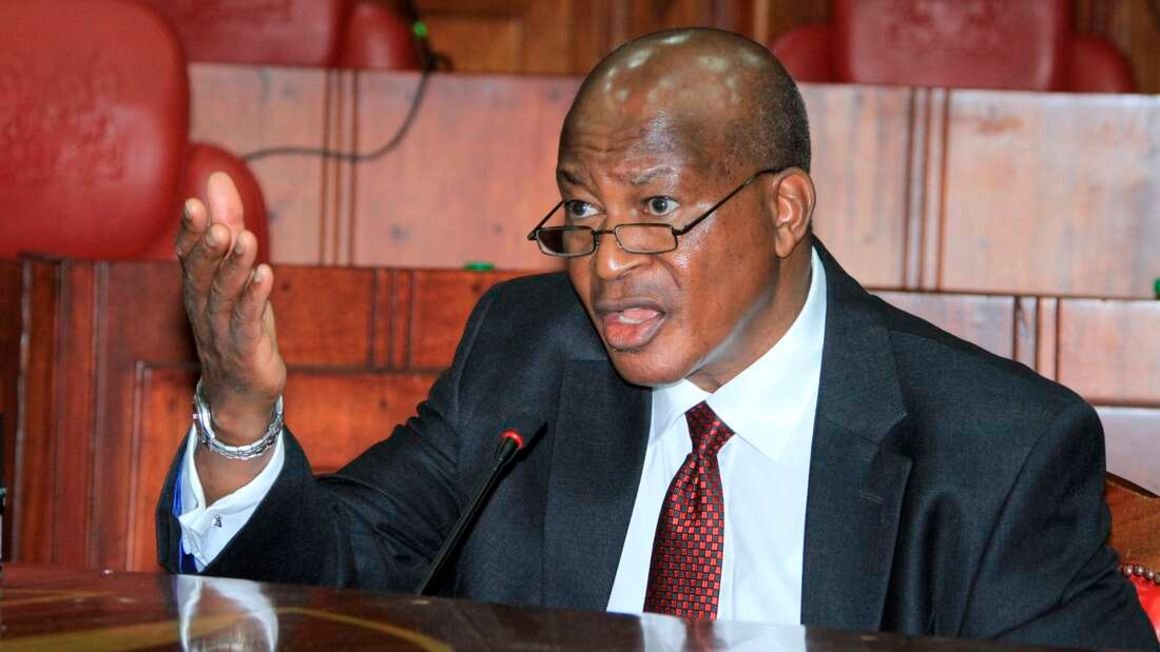Attorney General Paul Kihara Kariuki. PHOTO | JEFF ANGOTE | NMG The State will start making public the names, residential addresses and occupation of secret shareholders in companies that clinch tenders in ministries and parastatals.
Attorney-General Kihara Kariuki has unveiled fresh regulations that will compel the Public Procurement Regulatory Authority (PPRA) to reveal information on beneficial owners of firms that have secured tenders in State-backed entities.
This will for the first time unmask shareholders of companies who secretly benefit from State deals through nominee accounts in efforts to boost transparency in public sector procurement.
The International Monetary Fund (IMF) has in the past also demanded disclosure of secret owners in companies awarded procurement contracts as a tool for fighting graft.
Mr Kariuki made amendments to the previous regulations required that information on beneficial owners–investors who own more than 10 percent stakes in companies through secret accounts—be made available to the Kenya Revenue Authority (KRA), security agencies and the Financial Reporting Centre, which tracks illicit wealth.
Kenya in October 2020 started collecting personal data on beneficial owners, including their names, KRA PIN, national ID or passport copies, postal address, residential address, occupation and telephone numbers.
This information will now be made public through a portal manned by PPRA— the State procurement regulator —for firms that have secured tenders in government and parastatals.
“Beneficial ownership information maintained by the Public Procurement Regulatory Authority in the government portal in relation to entities that have been awarded a tender by the procurement entity as part of contract award shall be published and made publicly available,” says the Beneficial Ownership Information (amendment) Regulations, 2022.
The IMF says the disclosure of owners of companies that are awarded procurement contracts will help reduce the loss of public funds to graft.
The 2020 regulations barred companies from making public the personal details of the beneficial owners but opened the window for the KRA, security agencies and the Financial Reporting Centre to tap the information.
This was a pointer that the State was keen to use the information to unmask money launderers, corrupt individuals and tax cheats via the data.But the latest amendments mean ministries and State-owned firms are now free to reveal the personal details of the beneficial owners who have secured tenders funded by taxpayers.The unprecedented move is designed to expose insider dealings and other potential conflicts of interest.It could also expose external parties who have been caught in fraudulent transactions in the past.Kenya Power in […]
